 "In the field of observation, chance favours only the prepared mind."
"In the field of observation, chance favours only the prepared mind."This wonderful quotation is attributed to Louis Pasteur, the scientist who discovered the Germ Theory in the 1880s, which had contributed tremendously to the development of modern medicine.
According to my dictionary, 'chance' means 'opportunity or possibility of something happening."
How does one get prepared for chance or opportunity.
In the course of my work as a strategy consultant to small companies, as well as to schools and students, I have discovered and synthesized the following viewpoints, which I believe can readily help you to become sensitive to the opportunities around you.
SEEING WITHIN:
You must know yourself and believe in yourself. You must know who you are and what you want in life. If you believe you are a champion, and think like one, all you can see are the winning opportunities waiting for you!
SEEING AHEAD:
In essence, this is planning ahead. You must set goals in all areas of your life, and take consistent action to put your goals to work, for tomorrow…for the next 90 days…and for next year.
As a student, your priority is your study goals. Once you have this as your priority, then all you can see are the important things that will make your dreams come true.
SEEING BEHIND:
This is essentially learning from your past experiences. The past does not guarantee the future, but you can learn a lot from it:
-1 What work?;
-2 What doesn't work?
-3 What corrections do I need to make in my life in order for me to move forward?;
Anthony Robbins, internationally acclaimed Success Coach, once said:
"The difference between those who succeed & those who fail isn't what they have - it's what they choose to see and do with their resources and experiences of life."
SEEING ABOVE:
Senior Minister Lee Kuan Yew calls this 'having the helicopter ability'. It means having the ability to rise above and to see the entire forest, instead of seeing only one or two trees.
Oftentimes, we are too close to a problem, we just don't see the opportunities lurking inside it. Therefore, you must learn to rise above your problem and learn to see the larger picture of what is happening around you, and not get bogged down by nitty-gritty stuff.
SEEING UNDER:
Oftentimes, when we look at problems, we tend to look at only the surface and jump quickly to conclusions, without even looking at the underlying reasons or factors.
When we look at problems, we must also go under the surface and examine the root causes. For example, in addition to asking what has happened, who did it, and why it had happened, we should proceed further by asking what did not happen, who did not do it, and why something else did not happen…
Like icebergs, root causes of problems - hidden possibilities or opportunities - are always deeply submerged!
SEEING SIDEWAYS:
To paraphrase Dr Edward de Bono, a renowned creativity guru, this is thinking laterally. Only by moving sideways from looking at a problem , then only we can get to a new viewpoint, which will give us a new perspective to our problem. With a new perspective of a problem, we are able to see and take an alternative route to solving it.
When Mr Philip Yeo, the former Chairman of Singapore's Economic Development Board went to the United States to sell Singapore as an offshore petrochemical hub, the American investors laughed at him. They appreciated the attractive tax incentives offered but lamented that our offshore islands were too small - and they were right.
Mr Yeo rounded up all the top guns in the Economic Development Board, Jurong Town Corporation and other related government agencies to brainstorm the problem. They thought seriously - and laterally - and eventually offered the American investors a proposition they could not refuse: a new Jurong Island, formed by the merging of seven small offshore islands!
SEEING THROUGH:
This is perseverance and persistence in the face of adversity. Many of us tend to give up easily when we fail in something. For example, in school, when we got an F in the Chinese Language test or flunked the O Levels, we thought it was the end of the road. There is no such thing as failure, only feedback.
When we made a horrendous mistake in some part of our life, we just wanted to give up. According to motivational experts, there are no such things as mistakes, only learning experiences. But please, don't make the same mistake twice!
In fact, I like what F Buckminster Fuller, recognised as Planet Earth's Friendly Genius & inventor of the geodesic dome, once said:
"There are no failed experiments; only unexpected results!"
If Thomas Edison had not persevered and persisted in experimenting with some ten thousand filament alternatives, we would probably still be using large candles today!
SEEING BEYOND:
It is difficult to predict the long-term future, especially in a world that is rapidly and constantly changing. However, this should not stop us from considering and playing with some plausible scenarios in the future, in which we plan to play a major role in them.
In the corporate world , we call this scenario planning.
For a young student, it is pertinent for you to take a longer term perspective, at least ten or more years down the road, in terms of what you want to do with your life. This can affect invariably what you do today.
Let me illustrate. Today, you are a lower secondary school student and your dream is to become a neurosurgeon.
To become and succeed as a neurosurgeon, you need to have adequate working experience in a reputable hospital. To do that, you need to graduate from a top-notch medical university.
For entry to study in a top-notch medical university, you need to score excellent grades in your A Levels, and you also need to do well in your SAT. To attain that, you need to go into a good junior college to mix around with the best, and just to get into one, you need to achieve excellent scores in your O Levels.
So, it is obvious that your planning starts from today, and you will have to start by seeing beyond in order to consider all the educational options open to you!
Once you set this in motion, you will get to see the opportunities along the way that will pave the time-path for you to achieve your ultimate dream!
Be prepared for all the opportunities lurking around you, but first things first, go and enjoy your exploration from different viewpoints!
I would like to conclude this post with a quotation from Leonardo da vinci:
"If you wish to gain knowledge of the form of problems, begin with learning how to see it in many different ways."
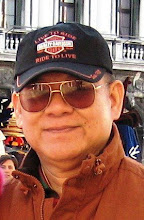



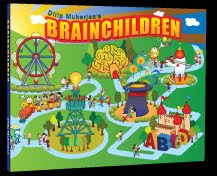



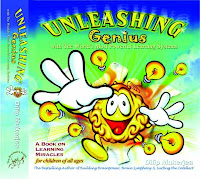
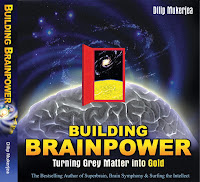
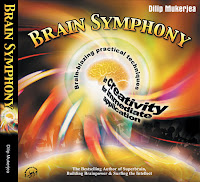





No comments:
Post a Comment